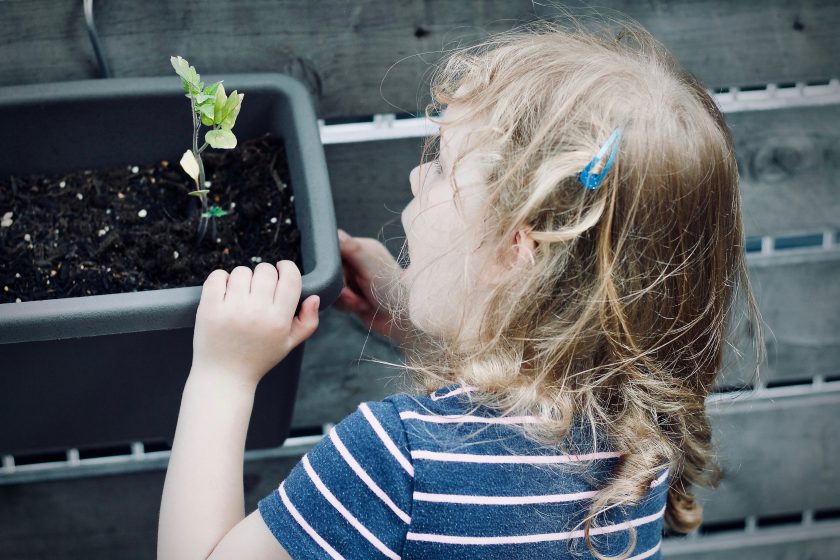
There are plenty of ways you can go about teaching this process of composting, and any way you choose it likely to be successful (insider secret: it’s not too difficult once you get the hang of it!) but children learn very differently than adults and will require extra attention and effort to figure everything out. Below are a couple different techniques we recommend to make your job as simple (and fun) as possible.
Use Visuals
We were all kids once, and we all know what it’s like to be bored to death by a textbook. In most cases, visuals are going to be your best bet in grabbing a kid’s attention in the first place. Make use of pictures, powerpoint presentations and whatever other technological devices you have at your disposal. If it’s more of an impromptu teaching class, use your words to help the kids visualize the scenario you’re presenting. In any case, encourage the children to imagine the entire process.
Do a Complete Demo
The demonstration will be able to teach volumes to the children; way more than any discussion will. With a demonstration you not only show them how it’s done, you also show them that you are well capable of doing what you are teaching them. Seeing the actions in real time will also eliminate the need for them to ask questions once it’s their turn, since they’ll be able to present their questions as you do your demo.
Track for Feedback
Kids can get opinionated about things that they like. Engage them even more by getting feedback from them throughout the process. Make sure to encourage them to ask any questions they might have; you’ll get through to them much easier if they’re not only comfortable with you, but also feel confident that they understand what you’re teaching them.
Entertain Questions and Take Time To Answer Each One
Children are easily discouraged, so make sure that you are able to reserve judgment and entertain questions, no matter how obvious or minor they may seem to you. Maybe try having an assistant teacher to help you field questions, or even bring a child in (either one from the class who seems to be have a grasp on the concepts or an older child who already knows what to do).
Explain The WHY
If the children are oriented from the outset that what they are doing is important they are more likely to cooperate and do the tasks cheerfully. Make sure that you’re prepared to explain to them why you do it, why you’re teaching them, and what the end benefits are.
Allow Them To Try On Their Own (with as little interference as possible)
The main purpose for educating them on composting is to have them equipped with the skills they need to be able to do composting themselves. Allowing them to put their newly acquired knowledge to use provides an opportunity for you to both correct and encourage them as they go.

